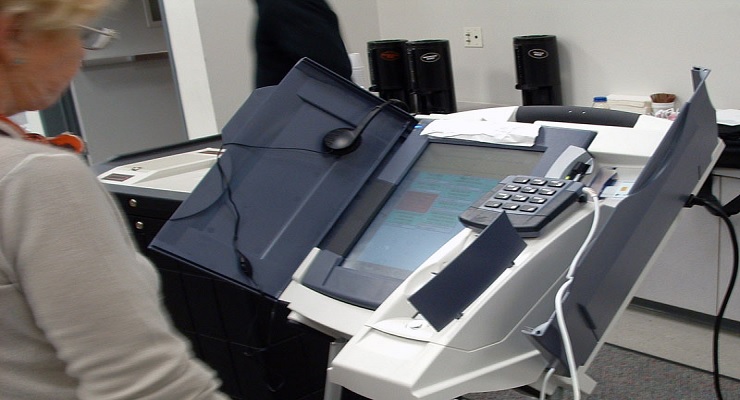
The press release from Free Speech For People:
Free Speech For People has filed a lawsuit on behalf of the National Election Defense Coalition (NEDC) to uncover communications about election security to and from the National Association of Secretaries of State. The lawsuit under the Indiana Access to Public Records Act charges the Indiana Secretary of State, Connie Lawson, with unlawfully denying access to public records regarding the reliability and security of voting machines. The Secretary has twenty days to respond.
“There has been worryingly little meaningful reform to secure our election systems in the wake of the revelations that foreign agents are trying to hack our elections. There is a through-line that directly connects the mis-information from NASS and Secretary Lawson to local officials’ resistance to adopting essential security policies for our voting process,” says Susan Greenhalgh, Policy Director for the National Election Defense Coalition. “We need to know why NASS and Secretary Lawson have repeated mis-information about voting system security that seems to originate from the voting system vendors.”
“After nine months of fruitless exchanges and Secretary Lawson’s repeatedly evolving explanations for denial and delay, NEDC still hasn’t received the vast majority of public records that it requested from the Secretary,” says Ron Fein, Legal Director of Free Speech For People. “It’s unfortunate that we need to sue to compel the Secretary to turn over these emails, but her delays have left us no choice.”
“The lawsuit we have filed today seeks to vindicate Hoosiers’ right under the Access to Public Records law to “full and complete information” about behind-the-scenes communications between private vendors and public officials,” says William Groth of Fillenwarth Dennerline Groth & Towe LLP. “Especially when it comes to the security of our elections, Hoosiers have the right to know what Secretary Lawson is hiding from her constituents and why.”
Secretary Lawson served as the 2017-2018 President of the National Association of Secretaries of State (NASS) and has frequently issued statements to the media, public, elected officials and the U.S. Congress about the security and trustworthiness of voting systems in the United States. Some of these statements have since been deemed inaccurate and potentially detrimental to election security efforts and could negatively impact our national response to foreign cyber attacks on our election systems.
In June 2017 testimony to the U.S. Senate Select Committee’s investigation into Russian interference in the 2016 election, Secretary Lawson insisted that it was “very important to underscore that voting machines are not connected to the Internet or networked in any way.” This is not accurate. Many voting machines certified for use in states such as Florida, Illinois, Michigan, and Wisconsin contain wireless modems which connect to the Internet and expose voting systems to online attacks. In addition, there have been multiple jurisdictions (in states such as Pennsylvania) whose voting systems were found to be configured with remote-access software installed. Remote-access software facilitates remote control of the system over the Internet. In many cases, the vendor sold systems with deliberately installed off-the-shelf “pcAnywhere” remote-access software on voting system devices.
In an effort to ascertain the sources of information used in Secretary Lawson’s public statements during her tenure in NASS leadership, The National Election Defense Coalition (NEDC) submitted a records request under the Indiana Access to Public Records Act in September 2018, seeking copies of communications between NASS and the Secretary of State’s office from May 1, 2017 through the date of the request. NEDC later amended its request to cover only specific email domains and communications containing specific election security-related keywords.
The Secretary’s office now claims that a standard email boilerplate (“The information contained in this communication from the sender is confidential”) in the signature block of every email from NASS staff exempts all of this private organization’s communications to the government from public disclosure.
Leave a Reply